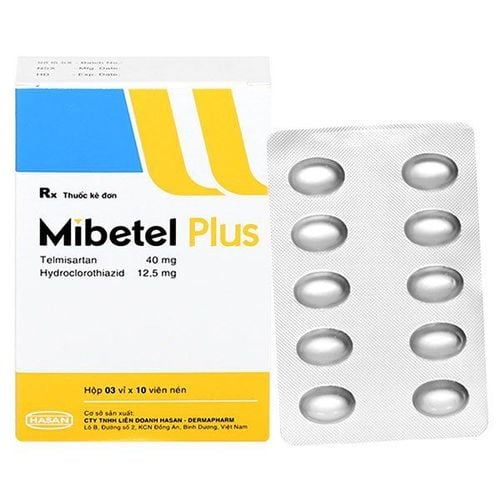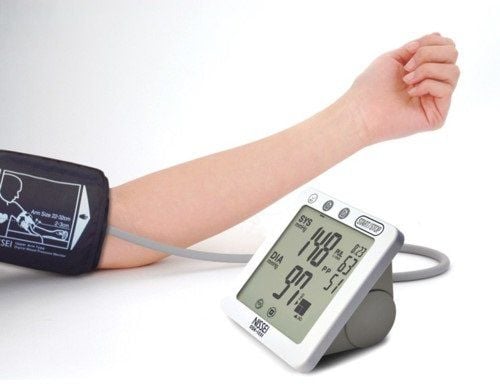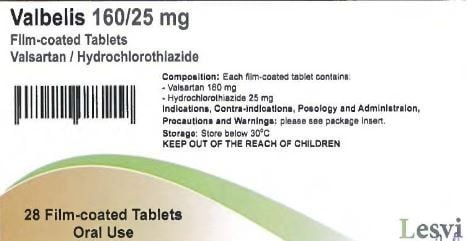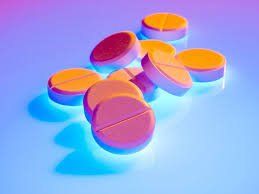This is an automatically translated article.
The article was professionally consulted by a doctor at Cardiovascular Center - Vinmec Central Park International General Hospital.Blood pressure does not always keep the same number but will change depending on our activities and emotions at that moment. Even just a small activity such as changing position, posture, drinking coffee or smoking, eating salty foods, being emotional... will also increase blood pressure. Understanding the factors that increase blood pressure will help people know how to keep blood pressure stable and protect the health of themselves and their loved ones.
Blood pressure is the blood pressure in the arteries, a parameter that identifies the health situation. A high blood pressure reading is when you have a systolic blood pressure of 140 mmHg or higher or a diastolic blood pressure of 90 mmHg or higher. Here are the risk factors for high blood pressure:
1. High-salt diet
High blood pressure is a warning that many of us have heard. This is not without foundation. Eating a lot of salt is a very common factor that increases blood pressure in public life. The recommended amount of salt in the meal of a person with high blood pressure is not to exceed 6 grams a day, which is equivalent to a teaspoon. However, the taste of most Vietnamese people in particular and Asian peoples in general consume many times more salt than recommended.
Therefore, the paleo diet is an important way to help prevent and treat high blood pressure. For people in the pre-hypertensive stage, just eating lighter, less seasoning and adding spices can also keep blood pressure stable without taking a pill. For people who already have the disease, this regimen helps reduce blood pressure by an average of 4 to 8 mmHg.
Trắc nghiệm: Bạn có hiểu đúng về huyết áp cao không?
Huyết áp cao còn được gọi là kẻ giết người thầm lặng vì bệnh thường không có triệu chứng. Thiếu hụt kiến thức về huyết áp cao có thể làm cho tình trạng bệnh trở nên trầm trọng hơn. Dưới đây là những câu hỏi trắc nghiệm vui giúp bạn hiểu đúng về bệnh cao huyết áp.2. Dyslipidemia
Consequences of dyslipidemia are shown indirectly in other diseases. When blood fat levels are high, it is the arterial system that suffers the most. Due to the constant pressure of blood flow, the endothelium in the arterial lumen is damaged and hardened, deposited atherosclerotic plaques, reduced elasticity, thereby increasing blood pressure.
Therefore, it is very important to follow a lifestyle and diet to control blood lipids, by reducing the consumption of unhealthy fats, such as those found in red meat, full-fat dairy products , animal organs, scrambled eggs, seafood,...; Adding green vegetables, grains, fruits to the daily diet is a way to delay the hardening of blood vessels and stabilize blood pressure.
3. Age
As the age increases, the blood vessel walls age and harden, reduce elasticity, so the pressure in the blood vessel will increase. As a result, blood pressure in the elderly will be higher than in younger people.
Accordingly, age is an unmodifiable risk factor for hypertension. However, knowing how to limit other factors that increase blood pressure will help stabilize blood pressure sustainably over time.
4. Family history
Many observational studies show that children born in families with parents with high blood pressure in particular or other cardiovascular diseases in general will have a higher risk of having it than the general population.
Thus, similar to age, family history is also a factor that cannot be removed. These subjects need to be actively examined for early detection to prevent cardiovascular events before they happen unfortunately.
5. A sedentary lifestyle
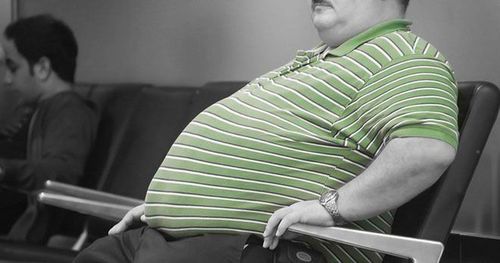
Lười vận động khiến tăng nguy cơ tăng huyết áp
People with regular exercise habits will help enhance cholesterol metabolism and consumption. If sedentary, the risk of dyslipidemia will increase, decrease sugar tolerance causing diabetes and indirectly increase blood pressure.
Therefore, in the treatment regimen for hypertension, doctors always encourage patients to exercise regularly, at least 30 minutes/day on at least 5 days/week with gentle to vigorous exercise such as: jogging, walking, swimming,... Avoid sitting continuously for a long time.
6. Total overweight - obesity
Body weight is also correlated with blood pressure readings. A series of observations have proven that the more body mass a person has, the higher the blood pressure will also be. Specifically, this disease is detected at a rather high rate in the overweight - obese population.
Thus, in parallel with physical training, it is necessary to pay attention to maintaining a healthy body weight. Form the habit of measuring weight every day to find ways to lose weight when overweight.
7. Smoking
Tobacco smoke is a collection of more than 100 chemicals that are toxic to the body. Among them, the cardiovascular system suffers the most damage. It is the nicotine of tobacco that causes nervous excitement, promotes sympathetic stimulation, causes vasoconstriction and increases blood pressure. Moreover, the danger from tobacco affects not only the individual smoker but also those around who inhale the smoke, especially the elderly and children.
Therefore, the habit of smoking should be resolutely quit, in order to keep yourself healthy as well as protect the health of the whole community.
8. Drinking too much alcohol
Like nicotine in cigarettes, alcohol is also a toxin of the cardiovascular system. Too much alcohol in the blood affects metabolic processes, increases blood lipids, damages the vascular system, causes cardiovascular diseases, including hypertension.
However, unlike smoking, alcohol is not recommended to be strictly abstained but needs to be used in controlled doses. Specifically, a man can drink no more than 350ml of beer or 150ml of wine or 44ml of spirits a day, in women, only half this amount.
9. Stress, anxiety

Căng thẳng kéo dài có thể dẫn đến bệnh lý tăng huyết áp
Emotion is a very fast-acting factor on blood pressure. A perfectly healthy person suddenly has anxiety, stress, insomnia will also encourage blood pressure to rise more than normal. If the condition persists, it will lead to true hypertension.
Therefore, on subjects who have been diagnosed with hypertension, it is necessary to arrange a reasonable time, work scientifically, and take appropriate convalescence. In addition, a good sleep also helps lower blood pressure, reduce the risk of heart disease and death. At the same time, you should know how to relieve stress by learning how to relax and rest such as meditating or practicing yoga.
10. Comorbidities
The common hypertensive disease seen in the population is primary (idiopathic) hypertension. This percentage accounts for more than 90%. The remaining 10% of patients with high blood pressure are due to conditions such as acute or chronic kidney disease, renal artery stenosis, pheochromocytoma, or other endocrine disorders such as primary hyperaldosteronism. Conn's syndrome), Cushing's syndrome, thyroid disease, parathyroid gland, pituitary gland... Some women have reported increased blood pressure during pregnancy.
For these cases, in addition to controlling blood pressure, it is necessary to actively seek out the cause and treat it. At that time, blood pressure will quickly stabilize or even be cured.
11. Due to side effects of drugs
Medications for other medical conditions can also cause high blood pressure as a side effect. The most common group of drugs in the community is the abuse of certain types of pain relievers such as NSAIDs (which are non-steroidal anti-inflammatory drugs) or some women taking oral contraceptives (including daily or emergency use) and certain types of drugs. Other drugs, when taken together, also carry the risk of an unexpected increase in blood pressure.
Therefore, when sick, it is necessary to visit a doctor for proper diagnosis and treatment. If you arbitrarily use the drug without a prescription, there is a risk of causing dangerous and unpredictable harm.
12. Incorrect blood pressure measurement
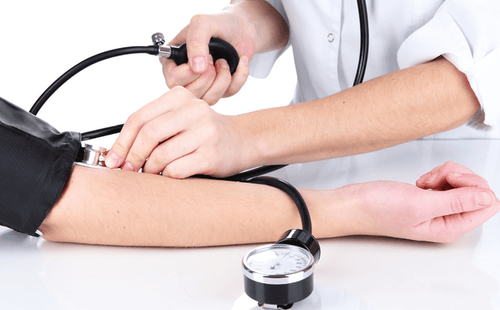
Đo huyết áp không đúng cách khiến dễ lầm tưởng huyết áp tăng
One factor that makes it easy to mistake high blood pressure is the blood pressure measurement technique. Using a bandage that is too tight, measuring when wearing clothes that are too tight, wearing a measuring tape when wearing a long-sleeved shirt... will see higher blood pressure. Not only that, the blood pressure measurement will also be inaccurate if the patient has just exercised without resting for at least 5 to 15 minutes; measured after smoking, drinking coffee, in anger, when the bladder is full. Even too low a room temperature causes blood pressure to rise. Many patients experience "white coat syndrome" where when measuring blood pressure at the hospital, the clinic finds that it is always higher than at home.
In these situations, the measure to avoid the possibility of artificially raising blood pressure is to know how to measure blood pressure properly. Besides, a diary to record blood pressure readings repeatedly at home has also become more reliable.
>> See more: Drugs to treat high blood pressure
Thus, in addition to complying with hypertension treatment, the prevention of the above factors is also an important thing to keep in mind to keep blood pressure stable . Regularly measure blood pressure at home to know your health status and have timely intervention, to avoid possible unfortunate consequences.
The best way when you have risk factors for high blood pressure is to visit the hospital. The basic hypertension examination package and the advanced hypertension examination package at Vinmec International General Hospital will help determine the exact causes, complications and levels of high blood pressure of the patient, thereby orienting suitable treatment.
Please dial HOTLINE for more information or register for an appointment HERE. Download MyVinmec app to make appointments faster and to manage your bookings easily.




